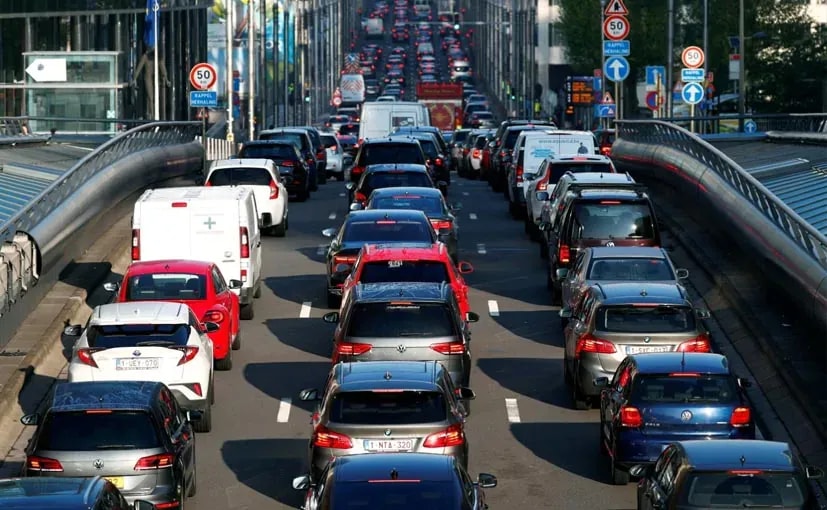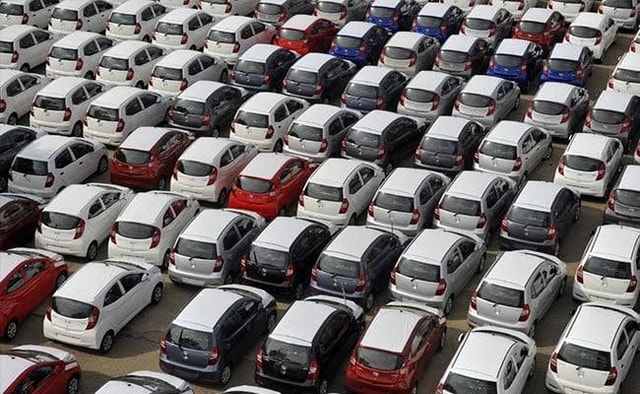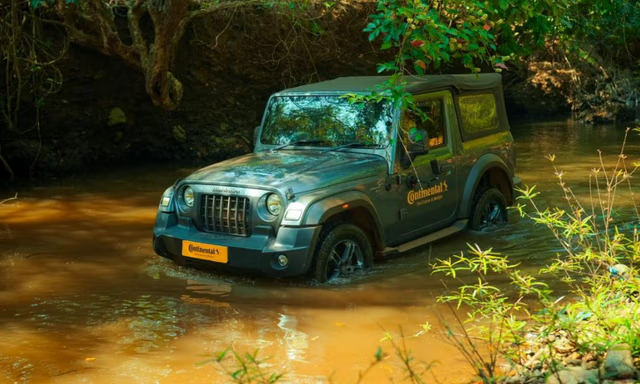New EU Deal Gives The Internal Combustion Engine A Fresh Lease on Life

The EU had previously announced a ban on the sale of new petrol and diesel cars after 2030. However a new deal has been now been struck that will essentially exempt ICE (internal combustion engine) vehicles from the ban provided they run on carbon-neutral fuels. Prior to this, the EU allowed only slight leniency to low-volume car makers who only registered 1,000 or less vehicles a year i.e. supercar manufacturers.
“Yeah, but that’s in the EU, how does it affect us?” You might be asking, well according to reports from the Society of Indian Automobile Manufacturers (SIAM), almost 30% of all passenger vehicles sold in India are European. This includes beloved powerhouse brands such as Volkswagen, Skoda, Renault, Mercedes-Benz, BMW, Audi, Fiat and many others.
This bodes well for both the masses and enthusiasts. Whilst a complete shift to electric vehicles in India is most certainly on the cards, to do so completely in the next 6 years is still a tough ask for a multitude of reasons.
ICE engines could soldier on but only when run on carbon-neutral fuels.
One of the biggest challenges faced by EV owners in India is the limited availability of charging stations, especially in smaller towns and cities. This can make it difficult for EV owners to plan long trips or travel outside their usual routes.
High upfront cost: EVs are generally more expensive than traditional dinosaur-juice-powered vehicles, which can make them less accessible for many Indian consumers.
Limited range: Many EVs available in India have a limited range, which can be a concern for consumers who need to travel long distances regularly.
Battery degradation: High temperatures and humidity levels in some parts of India can cause battery degradation, which can reduce the overall performance and lifespan of an EV.
Slow charging times: EVs can take longer to charge than traditional vehicles, and the lack of fast charging stations in India can further exacerbate this issue.
Our fellow Indian enthusiasts can also rejoice as our VW and Skoda cars are probably safe for the time being as well as our favourite sports car brands. Porsche would have been delighted to hear the news considering how much time and resources they’ve been pouring into researching and developing biofuels.
Ferrari CEO Benetto Vigna had this to say about the deal at a Reuters event, “The good news for us as a company is that on top of electric cars, we will also be able to go on with our internal combustion engines. This decision is very interesting for us because it allows ICEs to go beyond 2036,"
He further spoke on the trajectory of e-fuels “They are a new technology, and like for all new technologies they have time to become cheaper."
Ferrari plans for fully electric and hybrid models to make up 80% of models in its range by 2030 while the remaining 20% will still be powered by internal combustion engines.
"This does not change," Vigna said. "We don't want to tell clients which car to use. We want to make three kinds of propulsion available for them -- hybrid, electric and ICE -- and they will choose."
For now it looks like ICE cars will continue to live on in European markets.
Latest News
 Bilal Firfiray | Feb 10, 2026January 2026 Auto Retail Up 17.61% YoY At 27.22 Lakh Units: FADA ReportFADA reports 17.61% YoY growth in January 2026 auto retail at 27.22 lakh units, driven by strong rural demand, two-wheeler surge and positive dealer outlook for the coming months.3 mins read
Bilal Firfiray | Feb 10, 2026January 2026 Auto Retail Up 17.61% YoY At 27.22 Lakh Units: FADA ReportFADA reports 17.61% YoY growth in January 2026 auto retail at 27.22 lakh units, driven by strong rural demand, two-wheeler surge and positive dealer outlook for the coming months.3 mins read Jafar Rizvi | Feb 10, 2026BYD Atto 3 Evo Unveiled: 443 Bhp AWD EV With Up To 470 KM RangeBYD adds a second motor to the Atto 3, bumping torque to 560 Nm while the FWD standard model switches to RWD.1 min read
Jafar Rizvi | Feb 10, 2026BYD Atto 3 Evo Unveiled: 443 Bhp AWD EV With Up To 470 KM RangeBYD adds a second motor to the Atto 3, bumping torque to 560 Nm while the FWD standard model switches to RWD.1 min read car&bike Team | Feb 10, 2026Mahindra Introduces Remote Service Vans For EVs In DelhiNew service to enable service at doorstep for Mahindra’s range of electric SUVs.1 min read
car&bike Team | Feb 10, 2026Mahindra Introduces Remote Service Vans For EVs In DelhiNew service to enable service at doorstep for Mahindra’s range of electric SUVs.1 min read car&bike Team | Feb 10, 2026CEAT CrossRad Dual-Purpose Tyre Review: Tested Across Highways, Heat and GhatsA cross-country ride from Delhi NCR to Mumbai on my BMW G 310 GS made me appreciate just how critical good rubber is, especially when the journey throws everything at you.5 mins read
car&bike Team | Feb 10, 2026CEAT CrossRad Dual-Purpose Tyre Review: Tested Across Highways, Heat and GhatsA cross-country ride from Delhi NCR to Mumbai on my BMW G 310 GS made me appreciate just how critical good rubber is, especially when the journey throws everything at you.5 mins read car&bike Team | Feb 10, 2026Continental Launches CrossContact A/T2 Tyres In The Indian Market3 mins read
car&bike Team | Feb 10, 2026Continental Launches CrossContact A/T2 Tyres In The Indian Market3 mins read car&bike Team | Feb 10, 2026Tata Motors And Stellantis Sign MoU To Expand Collaboration On Manufacturing And EngineeringThe two brands have been in a 50:50 joint venture for the last 2 decades via Fiat India Automobiles Private Limited (FIAPL).1 min read
car&bike Team | Feb 10, 2026Tata Motors And Stellantis Sign MoU To Expand Collaboration On Manufacturing And EngineeringThe two brands have been in a 50:50 joint venture for the last 2 decades via Fiat India Automobiles Private Limited (FIAPL).1 min read
 Bilal Firfiray | Feb 10, 2026Tata Punch EV Long Term Review: Small EV With A Big-Hearted PersonalityWith the new Punch EV Facelift just around the corner, we decided to take a look at what it excels at and what could be improved.6 mins read
Bilal Firfiray | Feb 10, 2026Tata Punch EV Long Term Review: Small EV With A Big-Hearted PersonalityWith the new Punch EV Facelift just around the corner, we decided to take a look at what it excels at and what could be improved.6 mins read Bilal Firfiray | Feb 4, 2026Volkswagen Tayron R-Line Review: Sensible Flagship For IndiaVolkswagen has introduced a made-in-India flagship SUV that offers space, comfort, performance, and German driving finesse in a practical three-row package. But is the Tayron R-Line good enough?6 mins read
Bilal Firfiray | Feb 4, 2026Volkswagen Tayron R-Line Review: Sensible Flagship For IndiaVolkswagen has introduced a made-in-India flagship SUV that offers space, comfort, performance, and German driving finesse in a practical three-row package. But is the Tayron R-Line good enough?6 mins read Preetam Bora | Feb 2, 2026TVS NTorq 150 Road Test Review: Bigger, Better & More Efficient!We test the new TVS NTorq 150 out in the real world to get a sense of what it offers in terms of performance, dynamics and fuel economy.7 mins read
Preetam Bora | Feb 2, 2026TVS NTorq 150 Road Test Review: Bigger, Better & More Efficient!We test the new TVS NTorq 150 out in the real world to get a sense of what it offers in terms of performance, dynamics and fuel economy.7 mins read Bilal Firfiray | Jan 21, 2026Tata Punch Facelift Review: New Turbo Engine; Same Old SoulWith the update, the Tata Punch facelift retains its character of being a healthy runabout, which is perfect for Indian roads. But have these changes made it any better?7 mins read
Bilal Firfiray | Jan 21, 2026Tata Punch Facelift Review: New Turbo Engine; Same Old SoulWith the update, the Tata Punch facelift retains its character of being a healthy runabout, which is perfect for Indian roads. But have these changes made it any better?7 mins read Amaan Ahmed | Jan 17, 2026Bajaj Chetak C25 First Ride Review: Basic, Likeable E-Scooter For First-Time RidersThe Chetak C25, in quite a few ways, is poles apart from the larger and more powerful 30 and 35 Series models, but in its mannerisms, it is very much a Chetak.8 mins read
Amaan Ahmed | Jan 17, 2026Bajaj Chetak C25 First Ride Review: Basic, Likeable E-Scooter For First-Time RidersThe Chetak C25, in quite a few ways, is poles apart from the larger and more powerful 30 and 35 Series models, but in its mannerisms, it is very much a Chetak.8 mins read




























































































































